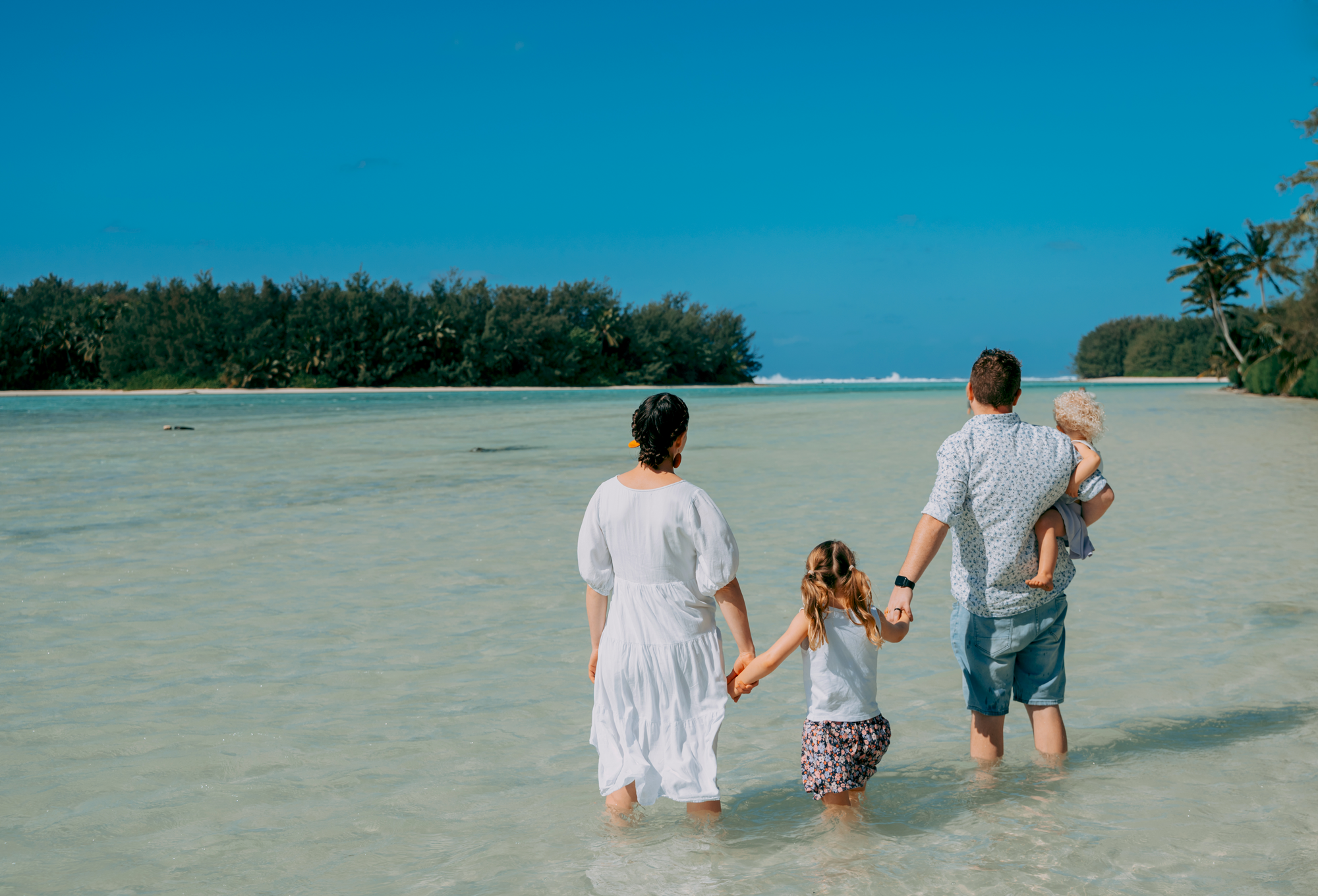Lessons from an eco-conscious visitor
For the past couple of weeks, we've focused on "Defend the Deep" messaging. The deep ocean is literally the last frontier untouched by significant human interference. Preserving the deep sea environment is hugely important for our own well-being.
However, as we move up the water column and into our atmosphere, human impact in the form of plastic waste becomes undeniable. This includes less obvious micro- and nano-plastics. Everywhere in the Cook Islands, you’ll find plastic on our shores, either washed up or left behind.
Much of the plastic problem is attributed to tourism. Yet, as our chat with Angela Pennington, reveals, we could tidy a few things up too.
Angela, who holidayed with a large family group, shared her challenges in trying to protect our paradise. She found "it was harder to reduce our waste when on holiday than it was at home." This was partly due to her unfamiliarity with local food sources. In New Zealand, she can use refillable containers; here, due to pest and climate issues, that's not yet possible. But we can rethink how some foods are presented. Do we really need to wrap fruit/vegetables in plastic, or sell pre-packaged bags when loose options are right next to them?
She also didn't know how we managed waste like Tetra Paks (eg UHT milk cartons, juice packs etc). So, instead of binning them, she explained, "We washed and dried them all and brought them home, along with our soft plastics, so they could be recycled here [in NZ]."
The Rarotonga holiday Facebook page was a good resource. Angela saw a comment advising visitors to buy food locally, as local purchases contribute taxes to waste management, unlike food brought in luggage. "So, we only brought over a few essential items for breakfast before we could get to a supermarket" she said.
Angela also noted that locals often offered plastic bags, seeming surprised when her family declined. She wondered about our public messaging on waste.
Maybe there is confusion around different plastic bags – compostable, biodegradable, reusable, or recycled. While they sound better than just 'plastic', all disposable plastic bags, even if they are said to break down (in specific environmental conditions), can leave residue. Most will leave microplastics. The best options remain cloth bags, cardboard boxes, or sturdy multi-use reusable bags.
But she has a point, we looked and found it hard to know how we would direct an eco-conscious tourist to visitor-specific waste management information. Angela suggested a section on the Tourism website, where she looked initially.
Is there somewhere a tourist can drop off separated waste? For example, plastics, glass, or most notably, food waste? At their accommodation, they had a fridge magnet explaining the bins, but there was nowhere for food waste other than to mix it with general waste. Knowing this wasn’t good practice, they kept it separate and pointed it out to the accommodation providers when they left.
Angela is not the only eco-tourist with similar ideals. A few years back, friends insisted on taking all their rubbish back to NZ, including packaging from items bought on Rarotonga - they insisted that plastic waste should be the responsibility of the country that produced it.
Marta, a frequent visitor from Brazil, has also been in to the Te Ipukarea Society office on several occasions to talk about what can be done with the waste she generates. After explaining what could and could not be effectively dealt with here, she said she would pack all the other waste, mainly soft plastics, into her bag to take back to New Zealand for recycling there.
On another occasion over 10 years ago, visitors recounted their experience when they went to a night market with their own containers to fill. The sellers back then insisted that they must take the food in the supplied ‘plastic’ containers.
Thankfully, much has changed since then. However, we still have a great deal to learn from eco-conscious visitors like Angela and Marta regarding expectations and their desire to do the right thing for our environment.
Angela concluded, "It feels particularly wrong when you're in this beautiful paradise where the turtles are, to be using plastic anywhere near them. It's more abrasive than using plastic in our cities back home. It just feels very wrong!"

